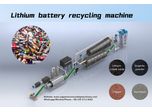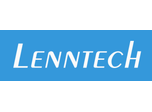Toxic Metal | Environmental XPRT
Articles & Whitepapers
-
How do you dispose of waste lithium battery?
Lithium batteries are considered hazardous waste, because they contain metals and other toxic or corrosive substances. But on the contrary, lithium battery have an excellent potential for recycled materials because of these metals. Therefore, all batteries must be disposed of safely and responsibly. Well, how to dispose of waste lithium battery? 1. Find recycling center: Look for a facility that ...
-
Risk Assessment and DUER Reporting With Eureka Plus
Case Study Information Business Need: This World Leader In Cable Manufacturer And Energy Solutions Was Looking For A Solution Which Produces The Single Risk Assessment Document (DUER) According To ...
News
-
EPA Finalizes Suite of Standards to Reduce Pollution from Fossil Fuel-Fired Power Plants
This week (April 25), the U.S. Environmental Protection Agency announced a suite of final rules to reduce pollution from fossil fuel-fired power plants in order to protect all communities from pollution and improve public health without disrupting ...
The dark side of ‘fast tech’ convenience
EPA Proposes All Lead Service Lines Be Replaced within Ten Years
Emergency Declaration for the U.S. Virgin Islands after Reports of Elevated Lead Levels in the Water Supply
HUD Announces Millions for New York City Housing Authority to Address Lead-Based Paint and Other Housing-Related Hazards
Equipment & Solutions
-
Showcase
Adsorbent Based on Granular Ferric Hydroxide
LENNSORB 101 is a high performance adsorbent based on granular ferric hydroxide. Made in a patented manufacturing process, it was special developed for selective removal of heavy metals and other toxic elements from water. Recognized for its high quality, LENNSORB 101 adsorbent complies with all requirements of DIN EN15029.











